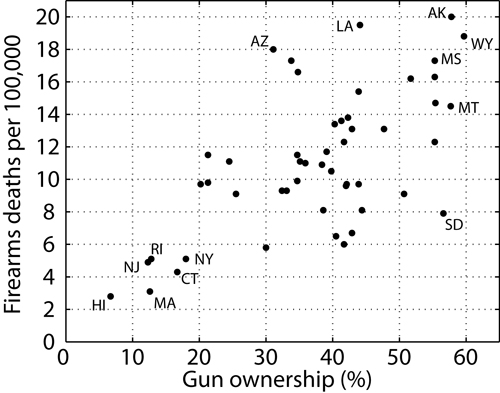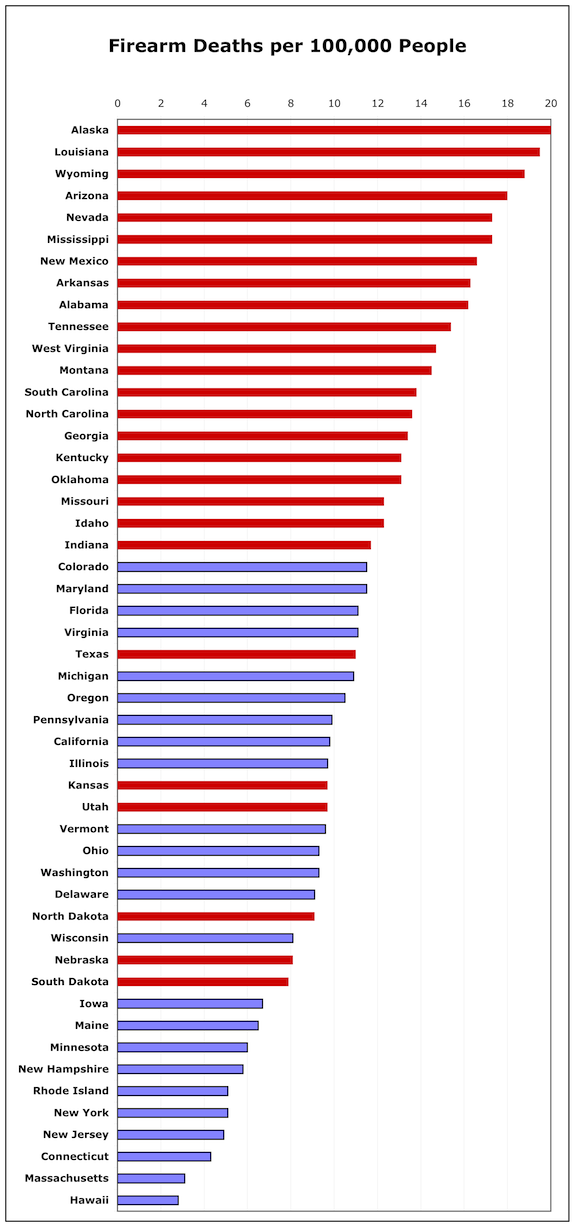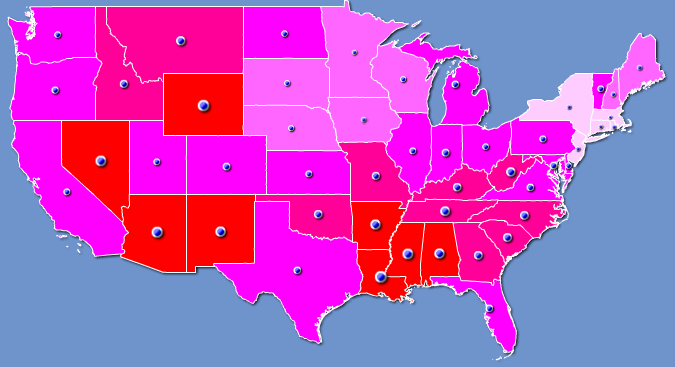

Originally Posted by
Justin '77

Interesting. So the states where gun ownership is more common -- where the average person has a relatively higher familiarity with firearms -- also tend to have populaces less afraid of guns and more opposed to the idea that restricting them from private possession is a solution to anything.
The more knowledgeable a people are about guns, it seems, the less inclined they are to ban or restrict them. And the posters here most stridently opposed to private firearms are the ones most abjectly ignorant of them. Funny, that...
I have never owned or fired a gun. I am not and have never been a police officer or soldier. I have no desire to do sport hunting. Above all, I have never committed any violent crimes or dealt drugs. I have shot an arrow from a bow, but I was shooting at a target. I don't see target shooting in any way objectionable -- it is in the league with golf, not a violent activity. I don't have a problem with target shooting, sport hunting, or collection of antique weapons. But target shooters, sport hunters, and legitimate collectors have much sophistication about firearms. They select their guns with great care. The military and the police? They are heavily regulated. People amassing arsenals in the prospect that they might have to resist an American Gestapo or KGB? People would be wiser to watch the political trends that allow an extremist regime to flourish and oppose politicians who show contempt for the niceties of democratic process.
I don't provoke the police, and I have no business getting into a war zone. Someone collecting flintlock rifles knows his hobby as does a stamp collector. So one who has legitimate involvement with firearms usually has knowledge far above the average with weapons -- and had better, in view of their costs and dangers. If one has no involvement with firearms one usually knows little about them. I could say the same about stamp collecting -- one knows much about postage stamps if one is involved in it (or gets it quickly if one is a curious and active novice). Of course one can do little harm with a postage stamp as a collector. A firearm is a different matter; it is inherently dangerous. Then there are the gangsters.
Street criminals who use guns aren't so knowledgeable about firearms. They have specific purposes -- to kill or maim someone, or to scare someone into surrendering property or submitting to rape. The garden-variety armed robber is a dope addict or a near-moron who doesn't know the subtle distinctions between guns. Any dimwit can use a gun for the wrong reasons. I see the stats and recognize that a firearm is a tool that any dimwit can use to kill someone with ease. Maybe there are gun-using subcultures that use their arms wisely and aren't particularly dangerous. Such subcultures as a rule know how lethal a firearm is and distinguish themselves readily from armed robbers and gangland enforcers.
I know little about guns, but I understand statistics very well. Because I have no reason to know much about firearms I don't accumulate the knowledge. The statistics show a strong positive correlation between a widespread ownership of firearms and deaths from firearms. Hawaii, Connecticut, Massachusetts, New York, Rhode Island, and New Jersey have the lowest rates of gun ownership and very low rates of firearm deaths. South Dakota isn't much worse in deaths from firearms despite being toward the top in firearm possession per person, but its gun-death rate is still higher than that of the low-gun cluster.

Maybe South Dakota has a large gun subculture that acts responsibly. But what about neighboring Montana and Wyoming? What is wrong with Arizona, which has a near-average rate of gun ownership but a high rate of firearm-based deaths? Urban gangs, perhaps?
The greatest evil is not now done in those sordid "dens of crime" (or) even in concentration camps and labour camps. In those we see its final result. But it is conceived and ordered... in clean, carpeted, warmed and well-lighted offices, by (those) who do not need to raise their voices. Hence, naturally enough, my symbol for Hell is something like the bureaucracy of a police state or the office of a thoroughly nasty business concern."
― C.S. Lewis, The Screwtape Letters









